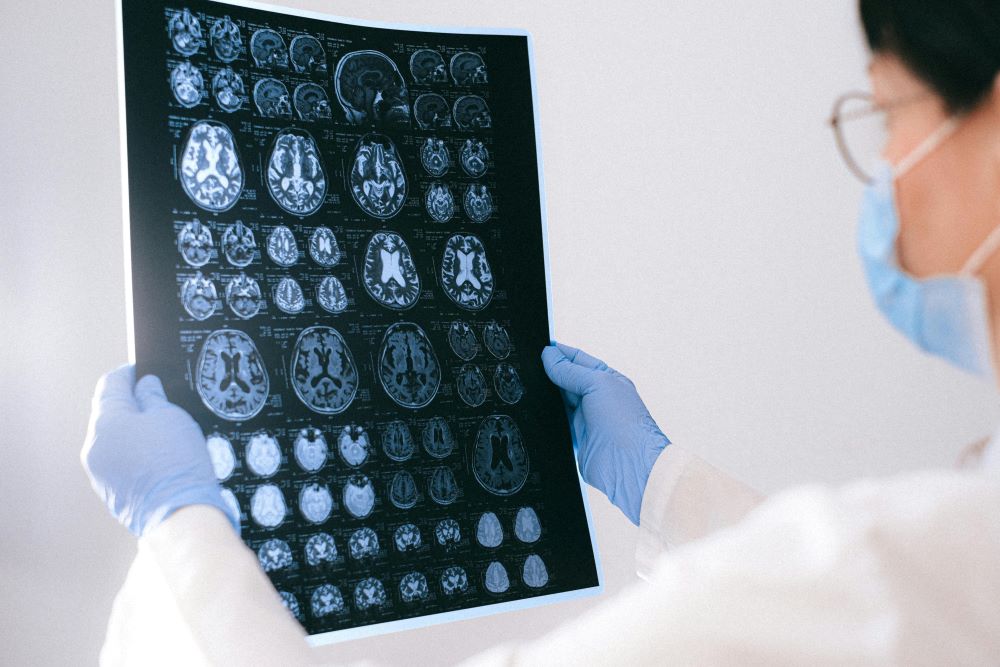Researchers found signs that the hippocampus and amygdala could permanently shrink with long-term benzodiazepine use.
Benzodiazepines like Xanax, Valium, and Klonopin have long been used to alleviate anxiety and reduce the frequency of seizures. These drugs raise the level of the inhibitory neurotransmitter GABA in the brain, producing a calming (often sedating) effect in the central nervous system and stabilizing symptoms. Benzodiazepines can provide positive benefits for patients who use them as directed. However, unfortunately, much like opioids, the sedating effects of these drugs cause many people to get “hooked” on them. Even individuals who began to use benzodiazepines for legitimate purposes commonly become reliant on, then physically addicted to, these drugs as brain chemistry changes over time.
A large number of individuals in the U.S. take benzodiazepines. In fact, research has shown that approximately 12.5% of adults use these drugs which equates to approximately 30.5 million people. Of these, about 2.1% misuse the drugs, and 0.2% go on to develop a diagnosable benzodiazepine use disorder.

From 1996 to 2013, prescriptions grew from 8.1 million to 13.5 million annually, representing a 67% rise. During this same period, the number of benzodiazepine-related overdose deaths increased to more than 7 times what it was in 1996. Coupled with opioid misuse, overdose rates have increased significantly. The National Institute on Drug Abuse reported nearly 14% of opioid overdose deaths in 2021 also involved benzodiazepines.
A recent study published in BMC Medicine used data from the Rotterdam Study, a long-term research project that oversaw the health of individuals in Rotterdam from 1990 to 2008, to determine if there is a connection between as-prescribed benzodiazepine use and neurological damage or an increased risk of dementia from the drugs repeatedly affecting brain chemistry. Over 5,000 individuals participated in the study.
The researchers ultimately concluded that, overall, use of these medications did not impact brain chemistry enough to increase the risk of dementia for patients taking them according to their doctor’s orders. This is good news considering this often-debilitating disease is also on the rise. A recent study by the Institute for Health Metrics and Evaluation (IHME), published in The Lancet Public Health, forecasts that global dementia cases will be three times what they are now by 2050. It’s important to note that the team did not focus on benzodiazepine abuse, which may have produced different findings.
The dementia study did, however, uncover other troubling results, including sustained changed in brain chemistry. Specifically, the researchers found signs that the hippocampus and amygdala tended to shrink over time in individuals who used benzodiazepines. The hippocampus, an especially vital part of the human brain, is responsible for memory formation and spatial navigation, while the amygdala is crucial for properly processing emotions. Shrinkage in either of these areas could decrease overall cognitive and emotional well-being.
The findings draw awareness to the fact that long-term benzodiazepines use can negatively impact brain health even though dementia may not be the issue. Compromising these areas of the brain, as shown in the study, can lead to poor memory recall and difficulties with regulating mood. There is a need for ongoing research into the effects of benzodiazepines, particularly since so many people are relying on these drugs to manage symptoms. Prescribers of benzodiazepines should also adhere to strict protocols and keep an eye out for signs that a person may be misusing these drugs. While more research is needed, taking high doses of benzodiazepines could potentially have an even more detrimental impact on the brain, compromising its structure in a shorter amount of time.
The team added that, for now, it’s important for those who need to use benzodiazepines to manage their symptoms not to panic. Instead, they should maintain an open and honest dialogue with their medical providers and be willing to pose questions about their care as they arise.
Sources:
Benzos like Xanax may shrink the brain in the long term, study hints


Join the conversation!